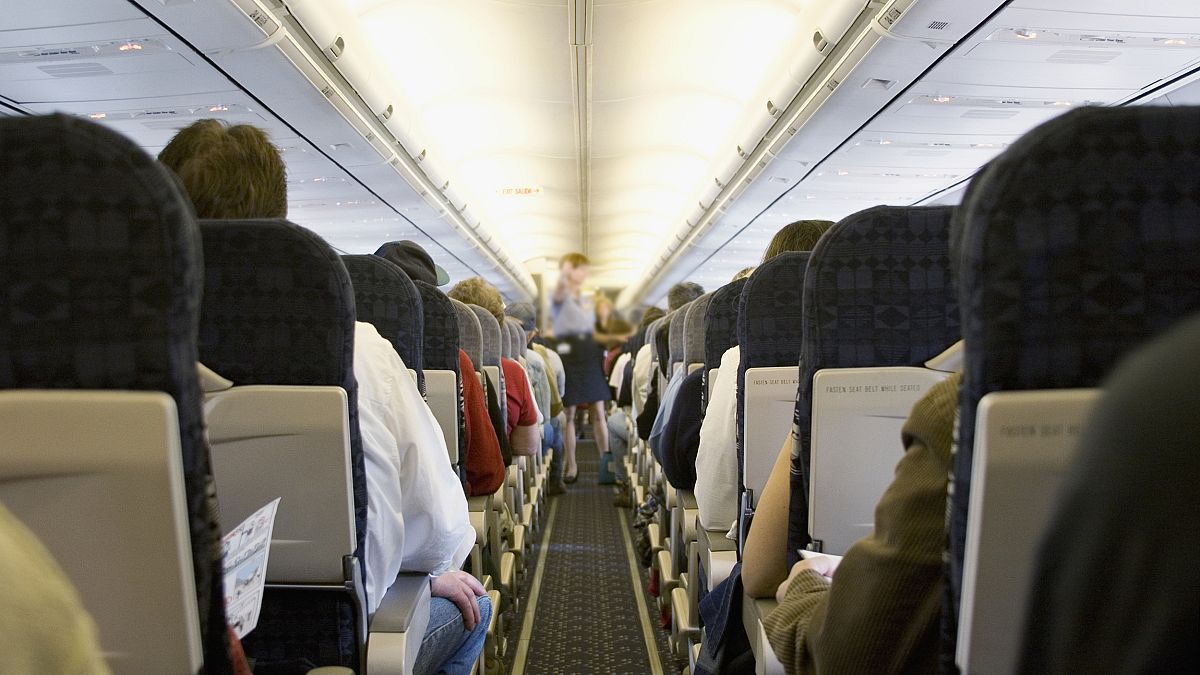President Donald Trump claimed credit for commercial aviation's remarkably safe year Tuesday, but experts say it's not his win.
President Donald Trump claimed credit for commercial aviation's remarkably safe year Tuesday, touting the industry's successes as his own in a morning tweet.
"Since taking office I have been very strict on Commercial Aviation. Good news - it was just reported that there were Zero deaths in 2017, the best and safest year on record!" he said.
Trump's partly right — there were no commercial airline fatalities anywhere in the world last year, according to data from Aviation Safety Network. But aviation experts say there's no evidence the president has improved safety here or abroad, while his administration's policies could actually have a negative impact.
"Airline safety in 2017 was the best that it has ever been. That is an ongoing trend that we have seen over the last 25 or 30 years, and it's due to the efforts of literally thousands of people in manufacturing, operators, pilots, flight attendants, dispatchers, mechanics, regulators, and the safety organizations," industry consultant and former U.S. airline captain John Cox told NBC News. "For one individual to try and take credit for it is not an accurate portrayal of what it took to accomplish it."
Paul Hudson, president of Flyerrights.org and a member of the Federal Aviation Administration's Advisory and Rulemaking Committee, told NBC News he hasn't seen any safety-improving measures enacted by the White House. Instead, he sees efforts that could hurt safety. The Trump administration is considering slashing hundreds of safety regulations, and has proposed slashing airport security funding and punting the cost to local authorities.
The White House defended the president's tweet in a statement.
"President Trump has raised the bar for our nation's aviation safety and security. Last year, the President announced his initiative to modernize Air Traffic Control and under his leadership, the Department of Homeland Security released enhanced security measures to ensure safer commercial air travel," Principal Deputy White House Press Secretary Raj Shah told NBC News.
But the president's endorsement of a proposal to privatize air traffic control by detaching it from the FAA — announced in June 2017 as part of a larger week of infrastructure-related events at the White House — has been stalled since day one. It currently doesn't have the votes in Congress.
Meanwhile, the enhanced security measures Shah touts are anti-terror measures. According to Cox, the initial electronics restrictions, put in place in March 2017, created additional safety problems by forcing passengers departing from certain countries to check electronics for several months. Lithium battery fires happen fairly often on planes and are harder to detect in cargo, Cox said, and cargo storage sprinkler systems can't always put them out. DHS announced in late June that it would replace the March ban with enhanced screening of electronics like laptops and devices larger than a cell phone.
"I haven't seen any evidence that the White House has done anything to improve airline safety or get strict with airline safety," consumer airline advocate Chris Elliott told NBC News, noting that previous years were safe, too. (There hasn't been a commercial passenger airline crash in the U.S. since 2009.)
"His efforts to deregulate these federal agencies like the FAA might actually create less safe airlines," Elliott told NBC News. "If you're trying to remove regulations, eventually you're going to stumble across a regulation that saves lives."
There were 10 fatal airliner accidents in 2017 that involved private aircraft or cargo planes, including a New Year's Eve crash that killed 12 in Costa Rica.
